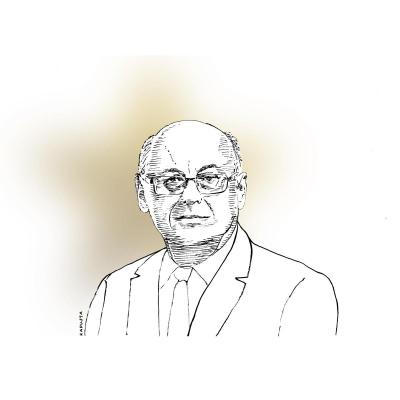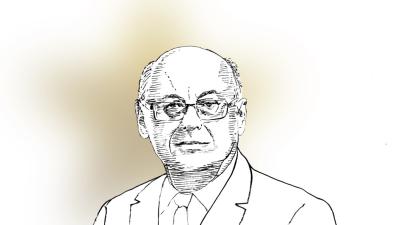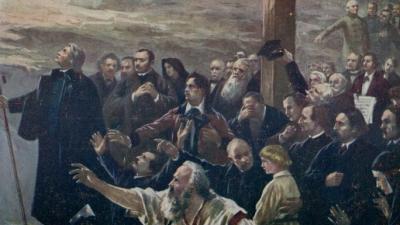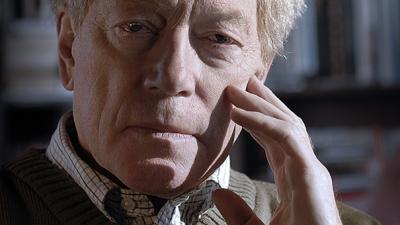What is the significance of conservatism for contemporary Europe? Do thinkers such as Roger Scruton, to whom this book is dedicated*, have any influence on the course of events, on Europe, on the European Union? Does conservative thought in general give us a better understanding of the modern world? Or is it not rather just a curiosity that should be treated merely as an intellectual game?
Indeed, conservative intellectuals were sometimes regarded as harmless eccentrics. Far more often, however, they were regarded as dangerous reactionaries. Roger Scruton was also treated as such. In the 1970s and 1980s Scruton was attacked for being extreme, even considered a ‘fascist’, although in fact it is difficult to imagine a thinker as moderate as him, especially against the background of radical intellectuals such as Sartre or Foucault who were celebrated at the time. Unrelentingly attacked in his own country and in the ‘West’ in general, he came to Communist-dominated Central and Eastern Europe and here, in opposition circles, found a more congenial space for his ideas. It should also be added that it is also difficult to imagine a more European thinker than Roger Scruton. At a time when few admirers of any kind of progressivism were interested in the civil rights movement emerging in Central Europe, when Marxism in its various forms was spreading in Western universities, he recognised the historical significance of what was emerging in Warsaw, Prague or Budapest. He also understood immediately that it was not a question of reforming “real socialism”, that allegedly distorted some legitimate ideas of Karl Marx, but of rejecting the system as such, and thus undermining many of the philosophical assumptions and ideas that Marxists and Marxist intellectuals on both sides of the Iron Curtain took for granted. Today we know that, after all, it was he who was right on many issues, not his adversaries.
But is the situation different today? Still “conservatism” does not sound good in the ears of many modern Europeans, it is still associated with stagnation, with not understanding modernity, with being out of touch with reality, defending unjustified privileges and inequalities. Conservatism is a morally questionable attitude. Even worse is ‘right-wing’ – in many languages this term has such a negative connotation that the word is avoided as a political or intellectual self-identification. Universities, including, and perhaps especially, the reputable ones, are dominated by a militant left fighting any sign of ‘right-wingness’ – just as they were when Scruton taught at Birkbeck College. “Moral asymmetrism”, assuming – as Scruton wrote in the new edition of his book “Thinkers of the New Left” – that the left is on the side of good and the right is on the side of evil still lingers in people’s minds [1]. Only in Central and Eastern Europe that it is still a bit different. Leftism was so discredited by communism that for a long time after 1989 no one wanted to be identified as such. Until now ‘social democrat’ in this part of Europe means mainly ex-communist. But here, too, a radical new left has emerged and Central and Eastern Europe is rapidly becoming more like the ‘West’. Today, Scruton would probably be greeted in Poland as he was once greeted by radical students in Britain or the United States.
One can also – at least until recently – doubt whether political conservatism still exists at all in Europe? The parties gathered in the European People’s Party, which are often referred to as conservative in the European Parliament, have long since become parties that are hardly distinguishable from liberals or social democrats. Many of them have completely lost their ideological identity because it is really difficult to say how the Christian Democrats today differ from their political competitors and especially what their Christian character is supposed to be. In Anglo-Saxon countries, ‘conservatism’ became synonymous with neo-liberalism and boiled down to demands such as low taxes, a minimal and a worldview-neutral state. In Europe, most political parties want to be in the political middle, in the centre, which, as if the very name protected them from accusations of being extreme (although de facto this centre is extreme in its ideas about politics, about the social order). Nobody in Germany, for example, refers to the CDU or CSU as right-wing or conservative parties; at most, such terms are used at the EU level. In the UK, while the Conservative party still has no major problems with its name, its conservatism has little to do with the kind of ideas preached by Scruton, and classical conservatism in general. In Central and Eastern Europe, the parties that we might consider conservative have often rather bizarre names, are ephemeral creations, with an ideological profile that is not entirely clear, and because of their weakness hide under an umbrella of the “European People’s Party”.
In modern European politics, if one is not ‘leftist’ or ‘liberal’, one can at best be ‘centre-right’. It is probably worst in Germany, where the past is something that needs to be ‘overcome’ and not continued. Germany has tainted Europe with its guilt and its injunction to break with tradition. It can be said that Germany was the pioneer of ‘cancel culture’, practicing it much earlier than it became fashionable in the US. This injunction to break with the past in Germany’s case seems entirely justified – one can hardly expect Germany to cultivate its national tradition or heroic virtues in an unrestrained way. But there is no reason why this should be the general pattern of behaviour. In this country, the construction of a free democratic order involved cutting off national traditions which – as it is assumed – lead to the rise of the Third Reich. It is worth remembering, however, that fascism and National Socialism were revolutionary, anti-conservative movements, and ideologically represented a transformation of Marxism and socialism. Today, even Russian communism has ceased to be recognised as a leftist phenomenon, in order to discard responsibility, to deflect the charge that the left is responsible for the crimes it committed. Putin, a communist KGB officer by all accounts, is considered ‘right-wing’ and ‘reactionary’. At the same time he is described ‘fascist’; indeed, even arch-communist Stalin himself is considered a ‘fascist’ today. On the other hand, the new right-wing parties that are successfully competing with the ‘centre-right’ are also stigmatised as ‘fascist’ or ‘almost fascist’. Those who use such political language are often unaware that they are following in the footsteps of Stalin and the Popular Front of the 1930s inspired by him. We are well acquainted with this language in Poland, because during the Stalinist era, heroes of the anti-Hitler resistance movement and representatives of the legitimate Polish state were murdered, tortured and persecuted as part of the fight against “fascism” and “reactionaries”[2].
This confusion of terms, manipulation of names, and stigmatisation serve to get rid of competitors and establish an essentially mono-ideal system and a political culture in which “grand coalitions” of those with an ideological certificate prevail. This is all the easier as many traditional right-wing parties, depleted of their own ideas, draw them from the left, especially the ecological, “green” and “identity left, taking over almost all its postulates in the axiological sphere”, repeating its sexual and ethnic phantasms. Also, thinking about Europe, about its future political form, about what shape the European Union should take, has been completely dominated by liberals, the liberal left and the Greens.
Also the left today is not the old left. Social democracy no longer represents the working classes. The more extreme left has completely lost its former illusory belief that an economic system other than the one called capitalism is possible. The left differs from the ‘centre-right’ only in its more generous social policies, in its call for even greater redistribution, while ideas such as the dictatorship of the proletariat or workers’ self-government have passed into the dustbin of history.
When there are no longer well-articulated, clear ideological differences, all that remains is a competition for power, a pure marketing competition in which the only thing that matters is the better manipulation of sentiments. And this is truly the source of what should be called populism – flattery of cheap tastes and ideallessness. This is why liberal democracy has essentially become a post-democracy and adequately understood populism is an integral part of it. And indeed, not so long ago, much was written about this blurring of political differences, about politics losing the character of ideological and programmatic competition, about post-politics. However, for some time now we have again been dealing with a new polarisation, which is taking similar forms everywhere. Such is the case in the UK, where ‘Brexit’ was decided by a conflict between those who are ‘from somewhere’ and those who are ‘from nowhere’ and may be from ‘everywhere’, between people rooted in their local communities, living in the provinces, and people from multicultural metropolises with a cosmopolitan mindset. This was the case in the United States, where the protest of the ‘deplorables’ brought Donald Trump to power. Just as at the time when communism was collapsing, this new trend – and thus a new conservatism – began in Central and Eastern Europe, in Poland and Hungary. It was here that the reaction against post-politics and extreme, voluntarist individualism emerged faster than in Western Europe, and it was understood that the principle of extreme individualism and relativism, which leads to the destruction of communities – nation, family, church and churches – is the road to nowhere[3]. Like seismographs, these two countries very quickly sensed that the European project was changing under the influence of neo-imperialist ambitions. The countries of Central and Eastern Europe were assigned the traditional role of protectorates or semi-colonies. Hungary and Poland took up the fight to protect their autonomy, a fight that Greece under the Left lost during the financial crisis. The migration crisis of 2015, when Angela Merkel wanted to impose a policy of open borders on European countries, united the Visegrad group and made it an important actor in EU politics, and ultimately contributed to the failure of Merkel’s plans. It was the resistance of the countries from the centre of Europe that also allowed the articulation of the European Union’s main problem, namely the relationship between the ever-increasing competences of the EU institutions and those of the member states. Just as the notion of civil society was once recalled and reintroduced into the political language in Poland, Czechoslovakia and Hungary in the 1970s, so today the extremely important notion of constitutional identity has been recalled. The proliferation of problems is causing a growing interest in conservatism. The Dictionary of Conservatism, published in France a few years ago, begins with the sentence that conservatism is in vogue [4]. In France in 2014-2017, one even began to speak of a triumph of conservatives in the ideological dispute [5]. This fashion is the result of the influence of Roger Scruton’s thought and the increasingly visible crisis of civilisation resulting from extreme liberalism. An analysis of this crisis can be found in prominent publications by contemporary conservatives, for example in Patrick Deneen’s well-known book Why Liberalism Failed[6] or the work of Adrian Vermeule. In Poland, too, there have recently been a number of important publications written in this vein, for example Bronislaw Wildstein’s Revolt and Affirmation[7] and Ryszard Legutko’s book The Demon in Democracy, published in English, which has received wide attention abroad[8].
Because it is difficult to exclude conservatism from the history of political thought and philosophy, and nominally conservative parties from parliamentary democracy, attempts have been made to disavow new forms of contemporary conservatism as populism or reactionary. Thus, for example, Mark Lilla in his book The Shipwrecked Mind. On political reaction makes a tenuous distinction between conservatives and reactionaries. In his book, reactionary thinkers include Franz Rosenzweig, Eric Voegelin, Leo Strauss, Alsdaire MarIntyre, Brad Gregory, but also to some extent Hans Urs von Balthazar or Henri de Lubac. As he stated in a radio interview with Alain Finkelkraut: “Today we talk a lot about reactionaries, but we mix everything up: conservatives and reactionaries. We have to distinguish between two types of political imagination on the right. The conservative has a permanent debate with liberals that revolves around human nature, the nature of society and the relationship between society and the individual. It is a debate in which the question of history does not arise. The reactionary, on the other hand, is the twin of the revolutionary, asking how did we get here? Both are lost in the myth of history, they want to explain history in order to understand the present. For the reactionary, it is important to define modernity”[9]. However, it is impossible to separate reflection on human nature and society from reflection on how the history of Western civilisation has turned out. Liberals also present their own philosophy of history, in many ways deceptively reminiscent of that preached by Marxists[10]. Contemporary conservatism is necessarily different in its concrete political and systemic proposals from those of Edmund Burke, Joseph de Maistre or Juan Donoso Cortés. We live in a different reality. But one thing remains the same: as before, it opposes radicalism, which always ends in enslavement and violence, even if today it could remain only symbolic violence. Radicalism is the subordination of social life to a single principle without looking at the circumstances. Who, then, is a radical, is it the one who points out to the diversity of national and political cultures in Europe, or the one who wants to impose one political culture, one memory, one way of life on everyone? Radicalism means disregarding the limitations of nature and history. So who is the radical today – is it the one who claims that gender is a matter of biology, although female and male roles are culturally expressed differently, or the one who claims that it is a matter of personal choice? And who is a populist – is it the one who demands that citizens fulfil their duties to the collective, or the one who says that only individual, free choices count? And is the radical someone who wants to preserve the precious heritage of the past and understands it as an obligation, or the one who claims that Western societies have become post-traditional and don’t need collective memory at all?
Radicalism has taken over the European Union. The spirit of most debates in the European Parliament, with its current distribution of political forces, corresponds almost exactly to Russel Kirk’s proposed description of the essential features of radicalism: “radicalism since 1790 has tended to attack the prescriptive arrangement of society on the following grounds – (1) The perfectibility of man and the illimitable progress of society: meliorism. Radicals believe that education, positive legislation, and alteration of environment can produce men like gods; they deny that humanity has a natural proclivity toward violence and sin. (2) Contempt for tradition. Reason, impulse, and materialistic determinism are severally preferred as guides to social welfare, trustier than the wisdom of our ancestors. Formal religion is rejected and a variety of anti-Christian systems are offered as substitutes. (3) Political levelling. Order and privilege are condemned; total democracy, as direct as practicable, is the professed radical ideal. Allied with this spirit, generally, is a dislike of old parliamentary arrangements and an eagerness for centralization and consolidation. (4) Economic levelling. The ancient rights of property, especially property in land, are suspect to almost all radicals; and collectivistic reformers hack at the institution of private property root and branch”[11].
It is the people who are today called populists and the far right who defend political pluralism. They are the ones who want to preserve the human being, the family, society, as well as the nation and Europe with its cultural heritage. While the left and centre-right feel perfectly at home in a liberal democracy, where ‘liberalism’ today does not mean ‘a plurality of comprehensive doctrines’, as Rawls wanted, nor the dominance of free market relations in social life, as the neo-liberals wanted, but the hegemony of extreme left-wing ideology.
Many of the ideas propounded by today’s conservatives were, until recently, not controversial, not political at all, but simply statements of obvious facts. For example, the whole of classical sociology was based on the assumption that societies are normatively integrated by custom, law and morality, that they are not the sum of individuals, that the family is fundamental to the transmission of values and the socialisation of individuals, that the gender binary stems from biology and is the basis of social relations, that religion is an essential factor in social life. Considered extreme, politicians and intellectuals are essentially defending only issues and things that arise from common sense.
Europe needs conservative thought in the face of today’s challenges, conservative thought that takes into account cultural and social changes without abandoning fundamental principles, without disregarding reality. Conservatism today is a defence of moderation and common sense, of reckoning with facts and the human condition, of what Scruton, with reference to phenomenology, called “Lebenswelt”. Conceived in this way, conservatism is an antidote to the radicalism of our time. It can be found in Roger Scruton’s books. That is why he is worth reading. And I am convinced that the importance of his thought will grow.
* This article was originally published in the book entitled Tradition and Change. Scruton’s Philosophy and its Meaning for Contemporary Europe, European Conservatives and Reformists, Warszawa 2022.
[1] See Fools, Frauds and Firebrands: Thinkers of the New Left Paperback, Bloomsbury, London, Oxford 2017, ch. 1.
[2] Piotr Semka, My, reakcja. Historia emocji antykomunistów 1944-1956, Zysk i S-ka, Poznań 2015.
[3] See Zdzisław Krasnodębski, Wir sind Konservative, die nicht kapituliert haben, ‘Die Welt’ 30.11.2020.
[4] Frédéric Rouvillois, Olivier Dard, Christophe Boutin, Le dictionnaire du conservatisme, Editions du Cerf. Kindle Edition 2017.
[5] See Eugénie Bastié, La Guerre des idées – Enquête au coeur de l’intelligentsia française. Groupe Robert Laffont. Paris 2021.
[6] Patrick J. Deneen, Why Liberalism failed, Yale University Press, Yale 2018.
[7] Bronislaw Wildstein, Revolt and Affirmation. Essay on our times, PIW. Warsaw 2020.
[8] See Ryszard Legutko, The Demon in Democracy. Totalitarian Temptations in Free Societies, New York, London 2016.
[9] https://www.radiofrance.fr/franceculture/podcasts/repliques/y-a-t-il-un-danger-reaction- naire-2002333. In his book, ‘reactionary’ thinkers include Franz Rosenzweig, Eric Voegelin, Leo Strauss, Alsdaire MarIntyre, Brad Gregory, but also to some extent Hans Urs von Balthazar or Henri de Lubac.
[10] See Ryszard Legutko, The Demon in Democracy, op. cit.
[11] Russell Kirk, The Conservative Mind, BN Publishing. Kindle Edition, pp. 16-17.
Read also
Roger Scruton Returns Home
After Sir Roger Scruton’s death, it was written about him that he was a profound but controversial thinker. Well, shallow thinkers, including philosophers, are indeed usually not controversial because avoiding at all costs theses that might be controversial inevitably leads to shallow thought.
Zdzisław Krasnodębski
20 min












Comments (0)